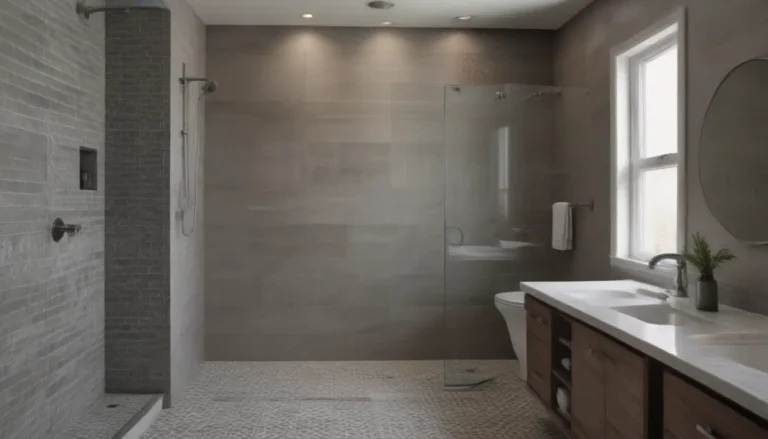The Importance of Feng Shui in Your Bedroom

In today’s fast-paced world, creating a peaceful and harmonious environment in your bedroom is essential for promoting relaxation, restful sleep, and overall well-being. Feng shui, an ancient Chinese practice of arranging objects to create a positive flow of energy, can help you achieve just that. By incorporating feng shui principles into your bedroom decor, you can enhance the energy and atmosphere of the space, ultimately improving your quality of life.
What is Feng Shui?
Feng shui, which translates to “wind-water” in English, is a philosophical system that originated in ancient China. It is based on the idea that the arrangement of objects in a space can affect the flow of energy, or qi, and influence various aspects of life, such as health, wealth, and relationships. In feng shui, the goal is to create a harmonious environment that promotes positive energy and well-being.
Transforming Your Bedroom with Feng Shui
When it comes to feng shui, the bedroom holds a special significance. It is considered the most important room in the home, as it is where you rest, recharge, and rejuvenate. By following feng shui principles and making simple adjustments, you can create a peaceful and balanced energy in your bedroom. Here are some dos and don’ts to help you feng shui your bedroom effectively:
Dos:
Position Your Bed for Success
The way you position your bed in the bedroom plays a crucial role in feng shui. Follow the principle of the commanding position by placing your bed so that you can see the door without being directly in line with it. If possible, position your bed diagonally across from the door. If this is not feasible, use a mirror to reflect the door from your bed.
Embrace Minimalism
When it comes to feng shui in your bedroom, less is more. Create a serene and clutter-free environment by removing unnecessary items that can disrupt the flow of energy. Keep your bedroom simple and clean, with essential furniture pieces like a comfortable bed, headboard, and rug. Avoid clutter, electronics, and items that do not serve a purpose in the bedroom.
Sleep in the Right Direction
According to feng shui principles, it is best to sleep with your head pointing southward. Consider the layout of your bedroom, including the placement of windows and doors, to determine the optimal sleeping direction. Positioning your bed in alignment with the earth’s magnetic field can promote better rest and relaxation.
Incorporate Symmetry and Balance
Use symmetry to create a sense of balance and harmony in your bedroom. If possible, have two nightstands and table lamps on either side of the bed. While the nightstands do not need to match exactly, they should be complementary and balanced to create a harmonious space for two partners.
Choose Calming Colors
When selecting colors for your bedroom, opt for neutral, non-stimulating hues that promote relaxation. Beiges, creams, and earthy tones create a tranquil atmosphere conducive to restful sleep. For a touch of color, incorporate soft shades of blue and green, which can evoke feelings of rejuvenation and vitality.
Don’ts:
Avoid Electronics in the Bedroom
Electronics such as televisions, computers, and cell phones emit electromagnetic fields that can disrupt your sleep and overall well-being. Keep these devices out of the bedroom to create a tranquil environment conducive to rest. Instead of relying on screens before bedtime, unwind with a book or engage in other relaxing activities.
Say No to Exercise Equipment
While exercise is beneficial for health and vitality, keeping workout gear in the bedroom can introduce active energy that is not conducive to restful sleep. Store exercise equipment in a separate area of your home to maintain a peaceful and relaxing atmosphere in the bedroom. Keep the bedroom a sanctuary reserved for rest and rejuvenation.
Limit Plants in the Bedroom
While some feng shui experts recommend incorporating plants in the bedroom to bring life energy, too many plants can create excessive energy that hinders restful sleep. Choose one or two plants that thrive in the bedroom’s specific conditions and avoid overcrowding the space with greenery. Select low-maintenance plants that complement the bedroom decor without overwhelming the space.
Maintain Cleanliness and Clarity
Regularly cleanse your bedroom to clear the energy and promote a harmonious atmosphere. Use smudging techniques or essential oils like sweet orange to uplift the feng shui of the space. Keep the bedroom free of clutter, unnecessary items, and negative energy to create a serene environment conducive to rest and relaxation.
Conclusion
Incorporating feng shui principles into your bedroom can transform the space into a sanctuary of peace and harmony. By following dos and don’ts of feng shui, you can create a balanced energy flow that promotes restful sleep, relaxation, and overall well-being. By embracing minimalism, symmetry, and calming colors, you can cultivate a feng shui bedroom that supports your physical, emotional, and spiritual needs. Take the time to assess your bedroom layout, furniture placement, and decor choices to create a space that nurtures your body, mind, and soul. With a few simple adjustments and mindful design choices, you can enhance the energy of your bedroom and create a harmonious environment that promotes vitality and balance.





